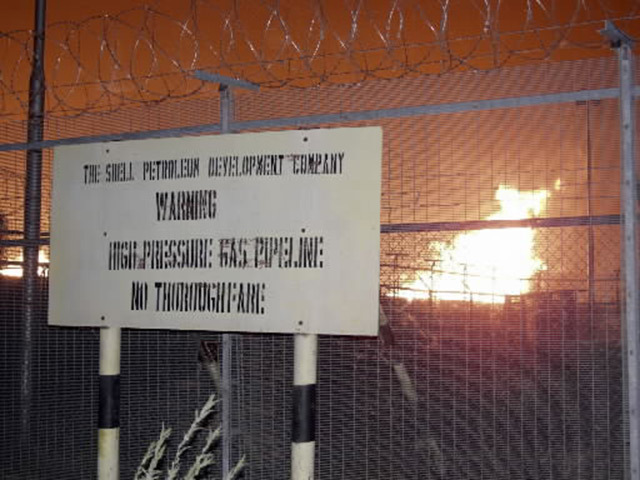
Nigeria’s government and Royal Dutch Shell have failed to act on a United Nations 2011 report on oil pollution in Ogoniland in the Niger Delta, according to an Amnesty International joint assessment.
A recommendation by the United Nations Environmental Program to set up a $1 billion fund to clean up contaminated land in the region has not been implemented and both the government and Shell have taken little action, according to the report published today by Amnesty, Centre for Environment, Human Rights and Development, Environmental Rights Action, Friends of the Earth Europe, and Platform.
“Three years after the publication of the report, there is little evidence that the government of Nigeria has any intention of taking meaningful action to address these issues,” according to the report.
“Shell has not addressed the pollution identified by UNEP and has continued to use deeply flawed clean- up practices.”
Hundreds of spills occur every year in Nigeria, Africa’s top oil producer and largest economy, damaging the environment and destroying the livelihood of rural communities in the Niger River delta region. Pipeline ruptures can be caused by corrosion, poor maintenance and equipment failure, as well as by thieves and saboteurs.
Shell, which has been operating in Nigeria for more than 70 years, has faced criticism from locals who say it pollutes the environment.
In 2009, The Hague-based company agreed to pay $15.5million to settle US lawsuits brought by Nigerians representing the delta’s Ogoniland area. It denied wrongdoing as part of the settlement.
Shell’s Nigerian unit was sued in the U.K. two years ago by 11,000 residents of the coastal Bodo community in Ogoniland, who said their land and wetlands were spoiled after two spills in 2008. Settlement talks broke down after their lawyers rejected a compensation offer.
Judge Robert Akenhead ruled in June that a Nigerian law, the Oil Pipelines Act, is adequate for compensating for spills, limiting the scope of the UK litigation to an assessment of actual damages caused.
Recommended for you
